To Construct Chinese Language Theological Theories with Chinese Connotation
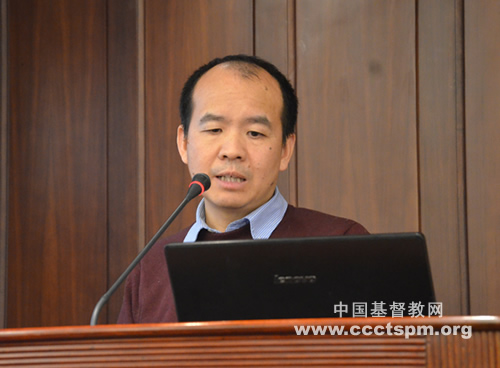
Prof. You Bin, Professor and Doctoral Supervisor of School of Philosophy and Religion, Minzu University of China
Titled “Respect/ Tranquility” and “Sabbath”: Chinese Bible Theology in Genesis 2:1-3”, this paper analyzes the interpretation of "God's Rest on the Seventh Day" in Chapter 2, Verses 1-3 given by Christian traditions, and discusses how can Chinese traditions, especially the Theory of Mind and Human Nature of Neo Confucianism be included so that we can construct Chinese theology (spirituality theories) that are both ecumenical and Chinese. The paper tries to conduct cross-interpretation between the concept of "Respect/ Tranquility" and the concept of "Sabbath", discussing how can the two concepts enrich each other through dialogue and deepen mutual learning, thus proposing the theory of Chinese theology (spirituality) and practice of "Respect/ Tranquility Sabbath" theory.
Constructive Significance of Hermeneutics in the Current Contextualization and Indigenization of Christianity in China
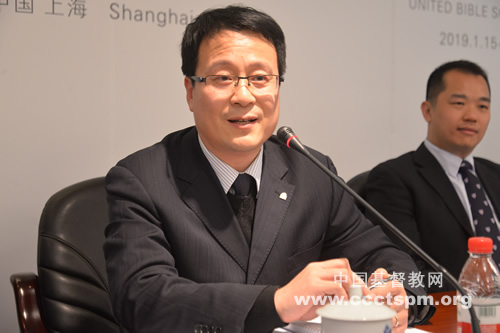
Rev. Dr. Wen Ge, Associate General Secretary of China Christian Council and Deputy Dean of Nanjing Union Theological Seminary
Titled “Discussion on David Tracy’s Hermeneutics and Its Constructive Significance for Contextualization and Indigenization of Christianity in China,” this paper introduces David Tracy’s theological hermeneutics from four aspects: theoretical origins, methodology, characteristics and its constructive significance for the current contextualization and indigenization of Christianity in China. The author believes that the church in China should pay attention to the uncertainty, plurality and commonality of Christian classics interpretation in constructing a theological framework for the Contextualization and Indigenization of Christianity in China and shifts from the traditional focus on Bible text itself and interpretation methods to the dimension of theological hermeneutics. Hermeneutics can help integrate the expectations of the political, educational and academic circles for Contextualization and Indigenization of religions in China, and allow the Bible, an ancient classic, to manifest its significance and values in the current Chinese context.
Digitalization Renews the Glamour of Early Chinese Bible Translations
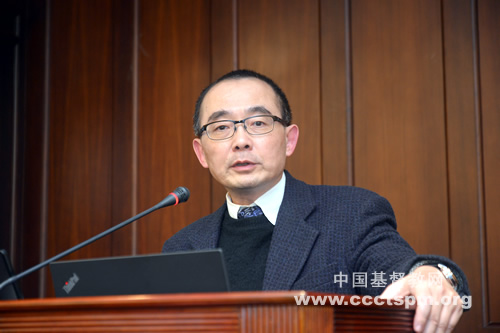
Dr. Simon Wong, Global Translation Advisor of the United Bible Societies
Titled Digitization of Chinese Bible Versions--A Witness of Contextualization and Indigenization of Christianity in China over the Past 300 Years”, this paper introduced that there are about 47 (nearly) complete versions of Chinese Bible translations and New Testament translations ever since the publication of the first complete Chinese translation of New Testament in the 1700s (by Jean Basset from Missions Étrangères de Paris). Among these, 34 versions were published before 1950s. UBS project Digitization of Old Chinese Bible Versions planned to offer 34 digitalized versions of Chinese Bible translation (about 20 million characters) for the public in three phases from 2014 to 2019. In addition, UBS has also conducted another project called “Digitization of Dialects and Ethnic-minority Language Bible translations in China”. In doing so, UBS hopes to preserve and revitalize these Bible translations, allow more people to know about the history and tradition of Chinese Bible translation and witness the Contextualization and Indigenization of Christianity in China over the Past 300 Years. This is also a way to extended heartfelt reverence to the translators of these Chinese Bible versions.
Integration of Knowledge and Action in the Book of James from the Perspective of Chinese Classics Studies
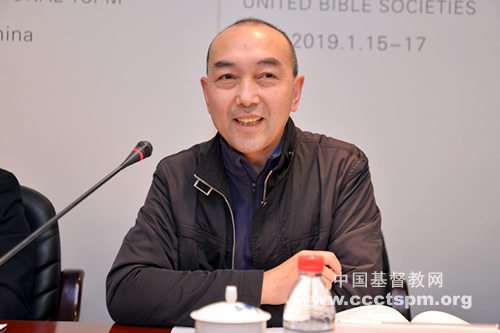
Rev. Yan Xiyu, Teacher of Nanjing Union Theological Seminary
Titled “Bible and Chinese Classics—Analysis of A Topical Study of the Epistle of James by Rev. Chen Jinyong”, this article explains why Mr. Chen Jinyong studied the Epistle of James. Around 1926, with a relaxed external environment, the church in China could have flourished. However, due to the intervention of imperialism, more and more people were against Christianity. Even some Christians turned their back against the Church in China and disgraced the Church. In seeing this, Mr. Chen wrote A Topical Study of the Epistle of James to remind Chinese Christians that though living under severe circumstances, they have to uphold holiness and perseverance so that the gospel of Christ can be revealed, win people’s heart and acknowledge the truth so as to achieve excellence”. “Easy to learn, but hard to practice.” This is Master Wang Yangming’s theory of “Integration of Knowledge and Action”. The Epistle of James echoes with Master Wang’s theory to a large extent.
Chinese Union Version is recognized by Educators for its Contributions to the Unity of the Chinese Language
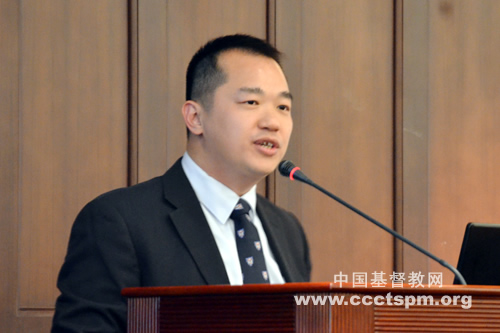
Dr. George Mak, Assistant Professor of Religion and Philosophy Department of Hong Kong Baptist University
Titled “Learn from the Chinese Union Version: The First Story of Creation in Genesis as the Text for Chinese Class”, this paper points out that the National Language Movement in modern China upheld the slogans of “Standardizing the Chinese Language” and “Unifying written and spoken languages” and advocated the usage of the Mandarin-based “national language” as the official standard language. Renowned Chinese educators Xia Mianzun and Yeh Sheng-t’ao favored CUV and included Genesis 1:1 and 2:3 verses of both Mandarin and Wenli CUVs in the first junior Chinese textbook Guowenbaibake with the title “ Hebrew Myth Genesis”. The translation of Genesis introduced in the Chinese textbook as a model essay indicated that CUV translation had been approved by influential Chinese educators in the Republic of China and the CUV translation of Genesis also played an important role in contributing to the unity of Chinese language.